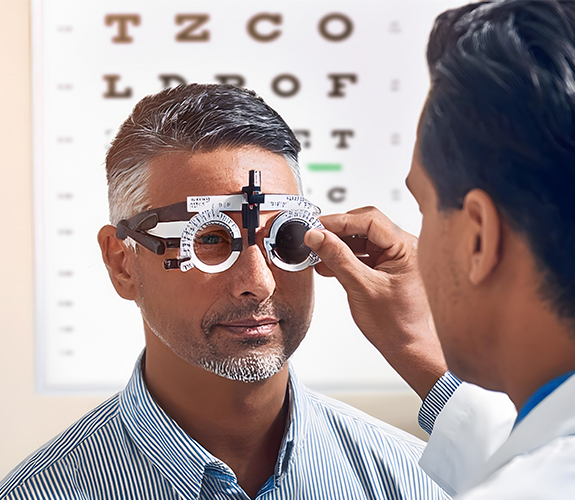Irregular heartbeats, clinically called arrhythmias, include several cardiac arrhythmias that disrupt the heart's regular beating pattern. It can take several forms, ranging from harmless, occasional palpitations to severe, life-threatening conditions like atrial fibrillation or ventricular fibrillation.
The prognosis and life expectancy of people affected by arrhythmias depend on many factors. These include the specific type of arrhythmia, the underlying aetiology, and the presence of other diseases.
This article focuses on cardiac arrhythmias and their prognostic considerations and the life expectancy of people struggling with this cardiac challenge.
What is an Irregular Heartbeat?
An irregular heartbeat is a disruption in the regular rhythmic pattern of the heart. This can manifest in different forms, including atrial fibrillation, ventricular tachycardia, or bradycardia. The implications of an arrhythmia can vary significantly depending on its type, severity, and the overall health condition of the individual. For some people, arrhythmias are harmless; for others, they can be life-threatening.
Types of irregular heartbeats
Before discussing the prognosis, it's essential to understand the types of irregular heartbeats, as they significantly impact the long-term outlook.
- Atrial Fibrillation (AFib): AFib is the most common type of severe arrhythmia and is characterised by a rapid and irregular heartbeat originating from the atria.
- Ventricular Fibrillation (VFib): VFib is an emergency condition where the heart's lower chambers quiver instead of pumping blood, leading to cardiac arrest if not treated immediately.
- Premature Ventricular Contractions (PVCs): These are early, extra heartbeats that don't cause serious problems but may indicate an underlying issue.
- Tachycardia and Bradycardia: Tachycardia is a fast heart rate, while bradycardia is a slow one. Both can be benign or indicative of more severe problems.
Prognosis: Factors to Consider
The prognosis for individuals with an irregular heartbeat depends on various factors-
-
Types of Arrhythmia - The prognosis often depends on the type of irregular heartbeat. While atrial fibrillation might require lifestyle changes and medication, ventricular tachycardia can be far more severe and potentially fatal if not immediately addressed.
-
Underlying Conditions - The prognosis can be significantly influenced by other preexisting conditions like hypertension, diabetes, and heart disease. These conditions can compound the risks associated with arrhythmia.
-
Lifestyle - Diet, exercise, stress management, and other lifestyle factors can also affect the prognosis. A healthy lifestyle may not only improve symptoms but also play a role in reducing the severity of the condition.
-
Treatment Compliance - The prognosis may depend on how well one adheres to treatment protocols, including medication and potential surgical interventions like catheter ablation or pacemaker implantation.
Life Expectancy: The Bigger Picture
In many cases, individuals with well-managed arrhythmias can lead normal, fulfilling lives. However, there may be a slightly increased risk of complications for some, particularly those with more severe arrhythmias or underlying heart conditions. Those with conditions like ventricular tachycardia or fibrillation, especially if they are recurrent and difficult to control, may face a higher risk of sudden cardiac events. Apart from this, many other factors affect the life expectancy of an individual.
-
Age and Gender - Older individuals and men tend to have a lower life expectancy when diagnosed with significant arrhythmias unless adequately managed.
-
Treatment Efficacy - Effective treatment can dramatically improve life expectancy, even turning a once severe prognosis into a manageable condition with a nearly expected lifespan.
-
Long-term Management - Committing to long-term treatment and lifestyle changes often normalises life expectancy, especially in cases where the arrhythmia is not linked to other severe medical conditions.
Determining life expectancy is challenging due to the heterogeneity of cases. However, with proper management, many people with irregular heartbeats can lead a normal lifespan.
Managing an Irregular Heartbeat
Effective management can significantly impact the prognosis and life expectancy.
-
Follow medical advice: Never skip medications, and always consult your physician before making any changes to your treatment plan.
-
Stay Active: Light to moderate exercise, under medical supervision, can benefit heart health.
-
Eat Well: A balanced diet rich in vegetables, fruits, and lean proteins can help manage symptoms.
-
Limit stimulants: avoid excessive caffeine and alcohol and quit smoking, as these can exacerbate symptoms.
-
Regular check-ups: Monitoring your condition through regular medical check-ups is essential for adjusting treatment strategies.
Conclusion
The prognosis and life expectancy for individuals with irregular heartbeats vary widely depending on several factors, including the type of arrhythmia, underlying health conditions, and lifestyle choices. With advances in medical science, most arrhythmias can be effectively managed to minimise complications, thereby improving the prognosis and often enabling individuals to lead a near-normal life.
If you or a loved one is experiencing symptoms of an irregular heartbeat, it is imperative to seek medical assistance promptly. At Saroj Super Speciality Hospital, you can rest assured knowing that you are in capable hands and that every effort will be made to provide you with the best possible outcome for your cardiac health.
FAQs About Irregular Heartbeat
Q 1. How serious is an irregular heartbeat?
Ans. The seriousness of an irregular heartbeat depends on factors like the type, underlying cause, and individual health. While some arrhythmias are benign, others, like ventricular fibrillation, can be life-threatening and require immediate medical attention. Always consult a healthcare professional for a proper evaluation.
Q 2. Does irregular heartbeat affect life expectancy?
A 2. Yes, an irregular heartbeat can affect life expectancy. The impact depends on the type, severity, and underlying causes of the arrhythmia. Proper diagnosis, treatment, and lifestyle adjustments can help mitigate risks and improve prognosis.
Q 3. What factors affect the prognosis and life expectancy of individuals with an irregular heartbeat?
A 3. Factors such as the type of arrhythmia, underlying causes, treatment effectiveness, and presence of other health conditions all play a role in determining prognosis and life expectancy.
Q 4. Can irregular heartbeat be cured permanently?
A 4. In some cases, yes. Treatments like catheter ablation can provide a permanent solution for certain types of arrhythmias. Consult a cardiologist for personalised advice.



